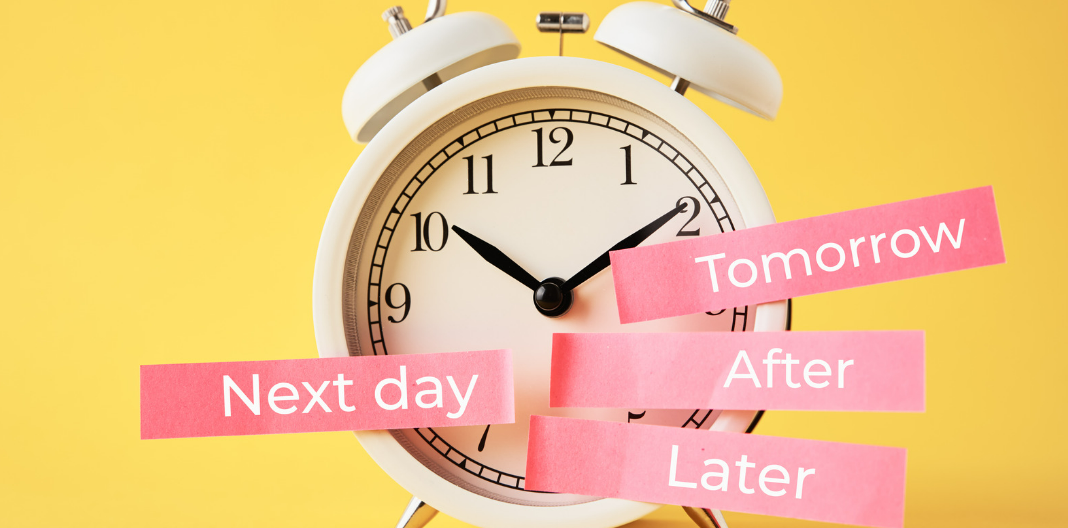Interview with Jami Gibson
In this episode, we will uncover 3 keys:
- Understanding Why We Delay: Discovering Why People Procrastinate
- Beating Procrastination: Simple Tools and Tricks for Positive Change
- Bouncing Back Financially: From Money Troubles to Feeling Strong

A Podcast Transcription
Episode 37: Break the chains of procrastination & free yourself from limiting beliefs!~Coach Jami Gibson
Intro
Odiva Vasell: (00:32)
Welcome, Jami Gibson.
Jami Gibson: (00:35)
Hi. Thank you so much. That’s so kind of you. Appreciate that.
Odiva Vasell: (00:40)
Yes. Jami, so you say that you are the self-proclaimed “Queen of procrastination.” Tell us your story. How did you get started in this business?
Understanding Why We Delay: Discovering Why People Procrastinate

Jami Gibson: (00:52)
Yeah, the story about me personally, like I said, Queen of procrastination. I have no problem saying that. I’ve always been that person that you wouldn’t know that I procrastinate because I’ll do things for you. I mean, if somebody, all of my friends, family, work, I was always on top of it. I would get it done early. I would overdeliver for you, all of that. But myself, my own world, kind of a mess. It’s kind of like that stereotype you hear about people who are interior designers and do these beautiful homes, but their own home looks like, what’s your business here? But yeah, I’ve been that way. I’m recovering from it. I still sometimes catch myself doing it. But what happened was I’m in my 60s now; it’s taken a while, but during this time, I found… I went through not one but two bankruptcies. Right? And the first one, it was like I had my excuses, I lost a job, the economy had shifted, all of that kind of thing, and it was embarrassing. It was humiliating for me. I just had all this stuff in my head started playing. I was like, never again. It’s not going to happen again. Well, it did happen again. Yes, twice. And I couldn’t really give the same excuse. So I had to sit down, and I had to talk to myself and be like, okay, what’s really happening here? Because I pride myself; I’ve been treasurers for different organizations. I mean, all that stuff, it’s like, what’s wrong with me? And after kind of spending some time and getting really real with myself and reading self-help books, going to workshops, doing all kinds of journaling and inner work and whatever, I discovered that my whole thing, the bankruptcies came from my procrastination, which I wouldn’t have put it to that back then. I would not have said it was procrastination because I was still paying things. I was just late. So I wasn’t connecting that way. But that’s kind of what it was. And the more work I did with myself on that as to why, what’s the procrastination, it came down to self-worth. I’ve always had since I was a little girl, as long as I can remember. I’ll take seconds. I’ll give everybody the best, and I’ll take seconds. I’ll give you my time, and I’ll get to myself when I can. So I wasn’t really honoring myself, taking care of myself. I was looking outside for that validation of being the go-to person, but kind of screwing myself too. I’ve been working through that. And then a couple of years later got the opportunity, built up the finances enough to go and get trained as a life coach for Fearless Living with Rhonda Britton, and it was a really great program. It taught me so many wonderful things, but it’s like, what am I going to do with this? And it came down to when I started looking at things. It’s like fear. I’m really good at dealing with fears. And then I’m looking at my history and my recognition of the self-worth thing, which I had come to like a couple of years before, but not really put it together 100% yet. And that’s where I came into the procrastination. And getting to the ‘root cause’ of your procrastination, not just I’m missing deadlines because I’m busy. Well, okay. Why? What is it?
Odiva Vasell: (04:16)
Talk about your why’s. What are the typical excuses that you went through? What were the excuses that led you to bankruptcy before you realized what was happening? How did that happen?
Jami Gibson: (04:29)
I was divorced and a single mom, so I had a lot on my plate. I had a high heavy position at my job with heavy deadlines for major clients. Oh, I need to take care of things for my parents too. This is going on. Oh, I’ve got these two kids that need ABCD. So I would have good intentions of sitting down and dealing with things. But I always allowed myself to get pulled into other places, and I thought I was being responsible. Those are what you do. Those are things you do when you’re responsible. And I always prided myself on being responsible. I just didn’t take it down to the and I was paying my bills. They just were getting late and later, but they were getting paid. So I was like, okay, it’s not the best, but at least I’m still doing it. So my excuses were just other people, I need to help other people. I need to do this, I’m responsible for this, I got to do that, and I came 2nd, 3rd, 4th, 5th.
Odiva Vasell: (05:29)
Wow. So you talked about having these excuses. What about making the decision to do things? What is that process that holds us between should I go A or should I go B? And then not doing anything? How does that happen?
Jami Gibson: (05:49)
Which is the easiest instant gratification. So for me in my spot, it’s funny the kind of job I used to have, I created questionnaires. I would have different clients. And if they asked me if I had a client that wanted me to do a questionnaire on Keebler cookies, I could do the questionnaire, I could run the data, I could figure it out. Boom, boom, boom. You gave me that exact same questionnaire that had a bank’s name on it or an insurance company’s name on it. The exact same thing with the exact same numbers I blanked out. I had this thing. So when it came to, like, with the bankruptcies, that was that scary thing over here. And I can take care of these things over here and get them done. It’s fast. I can do it fast. Don’t worry about it. But I kept adding more of those fast things where I felt like I was getting things done, which I was, but I wasn’t getting done what also needed attention over here.
Odiva Vasell: (06:41)
I think entrepreneurs could really relate to that. They might not see it at first, but I’ve noticed even in myself, social media, the minute you pick up your phone.
Jami Gibson: (06:53)
Oh, it’s scary.
Odiva Vasell: (06:54)
You get on social media and you start posting and commenting and liking and doing all these little things, and before you know it, an hour has passed, and you haven’t done the big thing, which is for your business. Instant gratification, interesting.
Jami Gibson: (07:13)
Checking for some people, and I’m one of them checking something off my list makes me feel like I’m getting things done. So the more I can check off, the better I feel about myself. But I’m not checking off the big thing, like you said, I’m checking off these ten little things that I think are helping the big thing. But if you’re being honest, probably not.
Odiva Vasell: (07:31)
Okay, so tell me a little bit about the six different kinds of procrastinators.
Beating Procrastination: Simple Tools and Tricks for Positive Change

Jami Gibson: (07:36)
Yeah, well, I haven’t come up with there’s six different types that I work with, and you can probably say there’s more, depending or less, depending on how you want to define everything. But my work. Yeah, my work. I’ve got these six. There’s the active procrastinator. This person is the one who thinks they do really great on deadlines with that adrenaline rush and keep putting it off. They know they’ll get it done, and they do get it done, but sometimes at the risk of burnout or their quality isn’t as good as it could have been, but they got it done.
Odiva Vasell: (08:06)
“Living on the edge!”
Jami Gibson: (08:07)
Very much. Then there’s the passive procrastinator. And this one doesn’t intentionally delay like the active one does, but they allow themselves to get distracted with social media, get distracted with other things, family, TV, whatever you want to say. They just passively procrastinate. I’m not. I just got busy. Right.
Odiva Vasell: (08:28)
“In a world of their own!” I’m going to give you all of these guys names.
Jami Gibson: (08:33)
Yeah. Then we have the perfectionist. And this one is they look really busy all the time because they’re so obsessive with the details and the specifics and this and this and this… But this one is really all of procrastinators; all the types have a fear of failure on some level, but this one seems to be strongest to me sometimes because if I don’t do it right, it’s a reflection of who I am, and that’s terrifying. So they’ll obsess on these details, but sometimes they obsess on the details so much that they miss the easy answer over here.
Odiva Vasell: (09:05)
Okay.
Jami Gibson: (09:06)
To get something.
Odiva Vasell: (09:07)
“That’s Miss don’t judge me!”
Jami Gibson: (09:08)
That’s right. Then you’ve got the decision analysis one. I’m sorry, decision paralysis one. And this is me, and this one has a tendency to overthink. Overanalyze. What if baboom, baboom, boom, boom, boom, boom. To the point of almost like deer in headlights and not really getting anything done, but you’re doing your research and all of that kind of stuff. It looks like you’re busy, but you’re just kind of getting its overload of information and not doing anything.
Odiva Vasell: (09:36)
In action. It’s like, “I am stuck on a hamster wheel!”
Jami Gibson: (09:40)
Yeah, but you think you’re being good because you don’t see it like that. Then there’s the purposeful procrastinator, and this one does procrastinate on purpose, but they always think that they have a strategy or a plan. It’s similar to the whole idea of when I’m making X amount of money, I’ll have a child, or when I accomplish this, I’ll do that. You know what I mean? And good intentions, good strategy but as we all know, those kind of plans sometimes keep getting pushed and pushed and pushed and pushed until it’s like it doesn’t happen. Right.
Odiva Vasell: (10:17)
That’s “Miss when and then”
Jami Gibson: (10:21)
the last one is the rebellious, the rebel procrastinator. And this one is similar to like, teenage girls or teenagers should say teenagers, where it’s like, you’re not going to tell me what to do and how to do it. I’ll do it when I want. And they do get things done, but they go against the grain on things just because don’t tell me. I mean, I’m guilty of that on kind of the opposite. If you tell me I can’t do something, watch me do it because this is kind of like telling you to do something. It’s like, I’ll do it when I say so. Right, so that’s the “Rebel Procrastinator”. So once you know, and we have many of us, all of us have aspects of different ones of these in us, but there tends to be one that you gravitate to the most that kind of is the overarching way of procrastinating. And once you kind of have that awareness, then we can work with, okay, let’s look at why you do that.
Odiva Vasell: (11:15)
Okay. When you spoke about the teenage rebel, I was like, yeah, I remember being that as a teenager, I really wanted to do it, but then you told me to do it, so now I’m not going to do it. I feel on some level I’ve cycled through waves of these different groups in my own life. So it’s interesting that there are these categories and we don’t even know we are experiencing this.
Jami Gibson: (11:14)
Yeah, because some of them are so easy to just make. Oh, yeah. You don’t see it as procrastination. What’s the word I’m looking for? You can kind of talk about it. There’s reasons you think there’s reasons, right? Yeah. It’s really just procrastination keeping you from what you want.
Odiva Vasell: (12:06)
Visibility. I would like to talk a little bit more about the perfectionist.
Jami Gibson: (12:12)
Okay.
Odiva Vasell: (12:15)
I remember being that way myself. Tell me again, what is the perfectionist procrastinator, and what is her fear?
Jami Gibson: (12:26)
The perfectionist is they have to appear that they know what they’re doing. And the idea of failing is a reflection on who you are as a person, you think, right? So let’s just say that let’s say the perfectionist, she does everything right, but maybe she didn’t have, like, you’re doing a presentation and maybe you missed something in the presentation, but it was so minor. But you go back and you beat yourself up for it forever. And it’s like, I shouldn’t. So then that feeds into the next time you’re doing something where it’s like, that’s not going to happen again. And then you kind of dig down, and that’s great to want to show that good foot of yours to go forward, but not at the detriment of holding you back, because then with the visibility aspect to it, you’re afraid to go out there and try because if I don’t do it right, what are they going to talk about me about? And are they even going to want to come talk to me for what I do? It’s that thing you hear, that first impression. Their thing is the first impression is so big that if it’s not exactly right, I might as well not try yet.
Odiva Vasell: (13:39)
So it sounds like that type of procrastination, the perfectionism, could also lead into the analysis paralysis. Because I deal with a lot of clients that come to me that well, the ones that I deal with, who English is not their native language, and they made some mistake in some presentation years ago, and now they’re the head of the department. They’ve got all the accolades. They’ve proven themselves as the head of their field, and now they’ve got to go into an international presentation, and they instantly become terrified, want to try and avoid it, give the job to somebody else, because that mistake is still playing back in their head from years ago.
Jami Gibson: (14:27)
Yeah, that’s like, I talk to people, I’m a bad test taker. You hear people say that I don’t do well taking tests. You’re kind of telling yourself you’re setting yourself up. It’s like, okay, you had a bad test once. How long ago? And now you’re going to say that you’re always a bad test taker. Well, that can be true because the more you talk to yourself that you are, you’ll create it. But that one time doesn’t define who you were or who you are.
Odiva Vasell: (14:53)
Yeah, it’s just bringing back to me. I was in the supermarket the other day, and there was a young girl that helped with the packing of the groceries. And she said I asked her a question. Oh, how many bags are there? And she was like I’m bad at math. And it was heartbreaking because she said it with such conviction. Yeah. I wanted to put on my coaching hat And saying if you say that, it will make it true. Believe in yourself. It’s sad that somewhere along the line we get this information and we take it as truth and carry that in our lives as, I guess, a limitation that you can’t get over.
Jami Gibson: (15:35)
It feeds into our self-esteem. So a lot of people, I feel their self-esteem could come up a few notches easily if they kind of took these labels off of themselves. I always procrastinate. I always fail when I try whatever, but it doesn’t have to be but if you keep telling yourself those things and you keep telling yourself you always fail. I’m a passive procrastinator. It’s just what I do. It doesn’t have to be that way. But then in the back, you’re telling yourself, well, that is who you do. So don’t try anything bigger because you know you’re just going to screw that one up too. It’s this weird catch-22.
Odiva Vasell: (16:22)
cycle. So what happens on the end? What’s on the other side? Where’s the hope for the procrastinator who’s been doing this for decades, they’ve had all the excuses that we’ve talked about. They have run into trouble, usually financial because they put things off once they get past that procrastination stage. And they really need to change. They want to change. They want that visibility. They want financial freedom. What does that look like for them?
Jami Gibson: (16:44)
That looks like they can do anything. Because working with finding out what type of procrastinator you are, understanding where it came from and why that takes down so many barriers for you that it allows you to create what you want to create. It allows you to go after that dream you want to go after. Because now that self-esteem. I said that was taking a hit before because it’s like, that’s just what I do. But well, why do you do it? You figure that out. We come up with those strategies, we work with that, and you can do what you want. These six types that I talked about, we all fall into them, sure, but they all have different strategies that work better for them than the other five. Right? So if you’re innocently taking a strategy that doesn’t necessarily work with a passive procrastinator, but it works for procrastination, so it should work for a passive no, not necessarily. But if you can take the ones that work for you the way that you are, naturally, then you’ve got the tools to push past. You’ve got the tools to you’ll still sometimes feel that fear and you’ll hesitate for a minute. That’s just the truth. Fear is never going to go away. We’re hardwired for it. But what’s your response to the fear? You’re going to let it win? Or are you going to say, okay, I see you there, but I’m still going to take this step.
Odiva Vasell: (18:02)
That is excellent news. And coming out from the other side of bankruptcy, what is that like, sound final.
Bouncing Back Financially: From Money Troubles to Feeling Strong

Jami Gibson: (18:18)
Yeah. Once I figured out why I haven’t had that problem, everything’s taken care of. I’ll admit I still have issues around the fear of money, which is something else I’m working on but I saw where it hit all my other areas of my life, too. So I recognize when I’m starting to fall into distracting myself with the instant gratification of helping this person or that person. No, Jami, first you got to go over here and you got to deal with this to the point where it’s like now I’ve got myself set up, and one of the things that works for me is once a month I sit down and I figure and being a self-employed person is a little scarier too than when I had the paycheck. When I had the bankruptcies, I had a regular paycheck. Now I don’t. So I really had to make sure that I dealt with this. And so once a month, I sit down and I figure out all my bills for the month, and I do automatic withdrawals for that week. That week. That week. So I know what’s going on. And everything is always paid on time, so there’s not that problem anymore. And I can also see where everything is instead of having that flurry before, where it was like, okay, I just got to pay this real quick. But I didn’t really pay attention to what was in the account before I took it out for that payment. Yeah. So it’s just helped me to start to build a better relationship with money. I’m still working on it, but it’s a better relationship with the money. But it’s a better relationship with me to know that I need to take care of me on this. Nobody else is going to. I mean, it’s just the truth for all of us. And I’m worth the time it takes to do something as simple as paying my bills on time.
Odiva Vasell: (19:52)
I love that. I’m worth the time it takes this. Yeah, that’s like a mantra. I’m worth the time. Before it was, this person needed me. That person needed me. And I’ll get to me when I can. I have to do for them, I have the valid excuse to put myself on the back burner, but now I am worth this time to do these things.
Jami Gibson: (20:16)
I keep telling myself, even when I get like there are times I’m like, oh, I don’t have to do this monthly thing today. I can do it tomorrow. But I keep reminding myself this is a form of self-care. This is a form of healthy self-care. Just sit down and do it, and then you can watch TV for a half hour.
Odiva Vasell: (20:32)
Rewards good?
Jami Gibson: (20:34)
Yes. Rewards are really important for some. Yeah.
Odiva Vasell: (20:37)
Well, I just want to thank you for joining me today, Jami. I believe myself and my listeners have learned a lot from this, and it’s so relatable what you’re doing, and I just appreciate the work you do. And thank you for joining us here today. Thank you.
Jami Gibson: (20:51)
Thank you very much for having me. It’s been great.
Odiva Vasell: (20:54)
You’re welcome.
[music]
Conclusion
In wrapping up this journey, remember that delaying tough tasks can shape our lives more than we realize. Take a cue from Jami Gibson, who, as our procrastination Queen, faced bankruptcy twice. Her story isn’t just about setbacks; it’s about bouncing back. By understanding why we procrastinate, we uncover the beliefs affecting our self-esteem. Jami, now a coach, guides entrepreneurs to overcome the fear of stepping outside their comfort zones for a more balanced life. Procrastination is more than a task checklist; it’s about taking control, fostering abundance, and enjoying a mindful lifestyle. Inspired by Jami’s journey, let’s break free from procrastination, face fears, and shape a future where it no longer calls the shots. The road to a more empowered life starts by understanding why we procrastinate and committing to a transformative journey ahead.